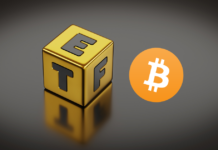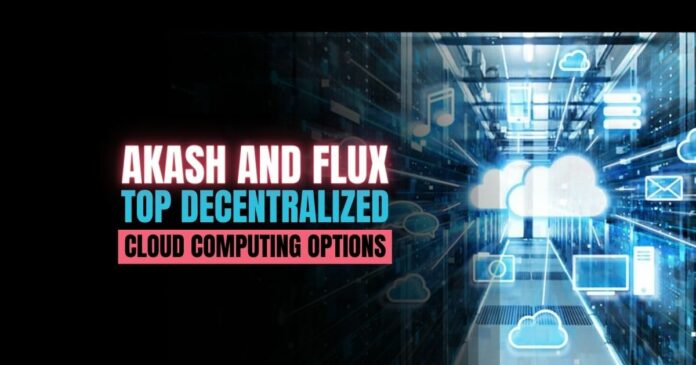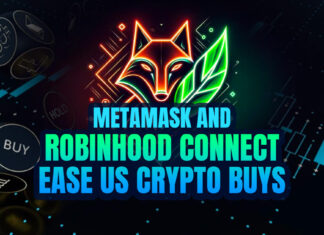Decentralized cloud computing has emerged as a solution to address the shortcomings of traditional cloud computing.
Akash and Flux are two such platforms that offer unique features and capabilities. Akash is a decentralized cloud computing marketplace connecting compute buyers and sellers. While Flux is designed for building and deploying scalable, cross-platform blockchain applications. In this article, we will take a closer look at Akash and Flux.
Decentralized computing
Decentralized computing has become an integral part of the web3 ecosystem, as it offers a reliable and cost-effective way to deploy web services. Many crypto projects run on decentralized computing as it completes the distributed storage or messaging needs. The principle behind decentralized computing is to utilize another computer to deploy a workload and serve a reliable web service. This layer is the Infrastructure-as-a-Service (IaaS) or Compute-as-a-Service (CaaS) layer. Thus it is similar to what we can find on centralized cloud platforms like Azure, AWS, etc.
Akash
Overclock Labs, a cloud service automation and management company, founded Akash. Greg Osuri is Akash’s CEO, and Adam Bozanich is the company’s CTO. Akash is built using the Cosmos SDK, enhancing price performance and scaling. Thanks to Akash’s compatibility with numerous existing cloud apps, businesses can join decentralized cloud computing. The platform distributes cloud capacity to provide more efficient and cost-effective cloud computing services than centralized alternatives. On top of that, Akash allows to set up validator nodes and RPC nodes on various Cosmos networks. It also offers entertaining games to try out.
Transactions on the Akash marketplace occur on the Akash blockchain, secured by a Delegated Proof-of-Stake (DPoS) consensus mechanism. Additionally, the protocol implements a Tendermint algorithm to increase speed and scalability.
$AKT
The native token of Akash, $AKT, serves multiple purposes within the network. One of its primary functions is to secure the network through staking.
Another critical use of $AKT is the lease settlements within the Akash marketplace. While several whitelisted tokens, including Bitcoin, can be used to settle leases, $AKT is a unit of measure for pricing settlements. This allows for flexibility in the settlement process, as users can lock in an exchange rate between $AKT and the currency they choose to settle with. $AKT also functions as a governance token for the network.
During Genesis, Akash issued 100,000,000 $AKT out of a maximum supply of 388,539,008. An inflationary model was used to encourage early adoption and lower service costs. The inflation rate decays exponentially and halves every two to four years. As of April 17, 2023, the price of AKT is $0.3596.
Public Cloud is a Public Utility
The philosophy of radical decentralization entails that systems should be open and transparent to all participants, not just a select few. On January 12, 2023, Akash took a major step towards further decentration with an open-source code base. By this, Akash ensures that the network remains truly decentralized and accessible to all rather than controlled by a small group of individuals. This step also increases trust and confidence in the Akash network.
Akash GPU Market Testnet will be open to the public on April 17, 2023. Users can access the most powerful GPUs for data-intensive tasks such as artificial intelligence, machine learning, and data analysis. The Akash GPU Market Testnet allows users to test and experiment with different GPU configurations and find the best one to suit their needs. Akash is well-positioned to become a leading decentralized cloud computing player.
But What Is Flux?
Flux aims to empower developers to launch scalable and cross-chain-compatible DApps with ease. The project began in 2018 as a fork of ZCash. It was initially named ZelCash and later rebranded to Flux in March 2021. Along with the rebranding, flux migrated from $ZEL to $FLUX. As of 17 April 2023, $FLUX is trading around $0.7. Hosting a cloud computer on Flux costs just $4.16 USD per month, which is cheap compared to AWS, Contabo, and Vultr.
Flux uses the proof of work (PoW) method of validating transactions, like its ancestor chains Bitcoin and ZCash. However, Flux has made significant changes to the PoW mechanism to promote the use of green energy. Flux employs a proof of useful work (PoUW) mechanism for this purpose.
Chief Components of Flux
- Flux blockchain
- FLUX asset
- FluxOS operating network
- FluxNodes
- a multi-asset crypto wallet – ZelCore, and
- a decentralized autonomous organization (DAO) – XDAO.
Developers can use the Flux ecosystem to build decentralized applications (dApps) with flexibility over design. They can apply for funding through the Flux Labs grants scheme and use the Flux toolkit with minimal development requirements.
Users can interact with permissionless dApps or contribute to the Flux ecosystem by running network nodes.
WordPress on Flux
Flux offers the service of WordPress to deliver exceptional website security and performance. Word press on Flux is cost-effective and cheap than word press on Bluehost and Godaddy.
Energy Consumption
Flux has developed a mining algorithm, ZelHash, resistant to ASIC mining. ASICs are popular mining machines for Bitcoin, which have high energy consumption. Instead, Flux employs GPU mining, resulting in less energy consumption.
Conclusion
Akash and Flux are two excellent decentralized cloud computing platforms offering unique features and benefits. Akash is ideal for businesses and individuals that need high-performance computing resources and a flexible pricing model. At the same time, Flux is suitable for those that need a highly resilient cloud infrastructure and low-latency processing. Choosing between the two platforms will ultimately depend on your needs and requirements.
⬆️ For more cryptocurrency news, check out the Altcoin Buzz YouTube channel.
⬆️ Our popular Altcoin Buzz Access group generates tons of alpha for our subscribers. And for a limited time, it’s Free. Click the link and join the conversation today.



























